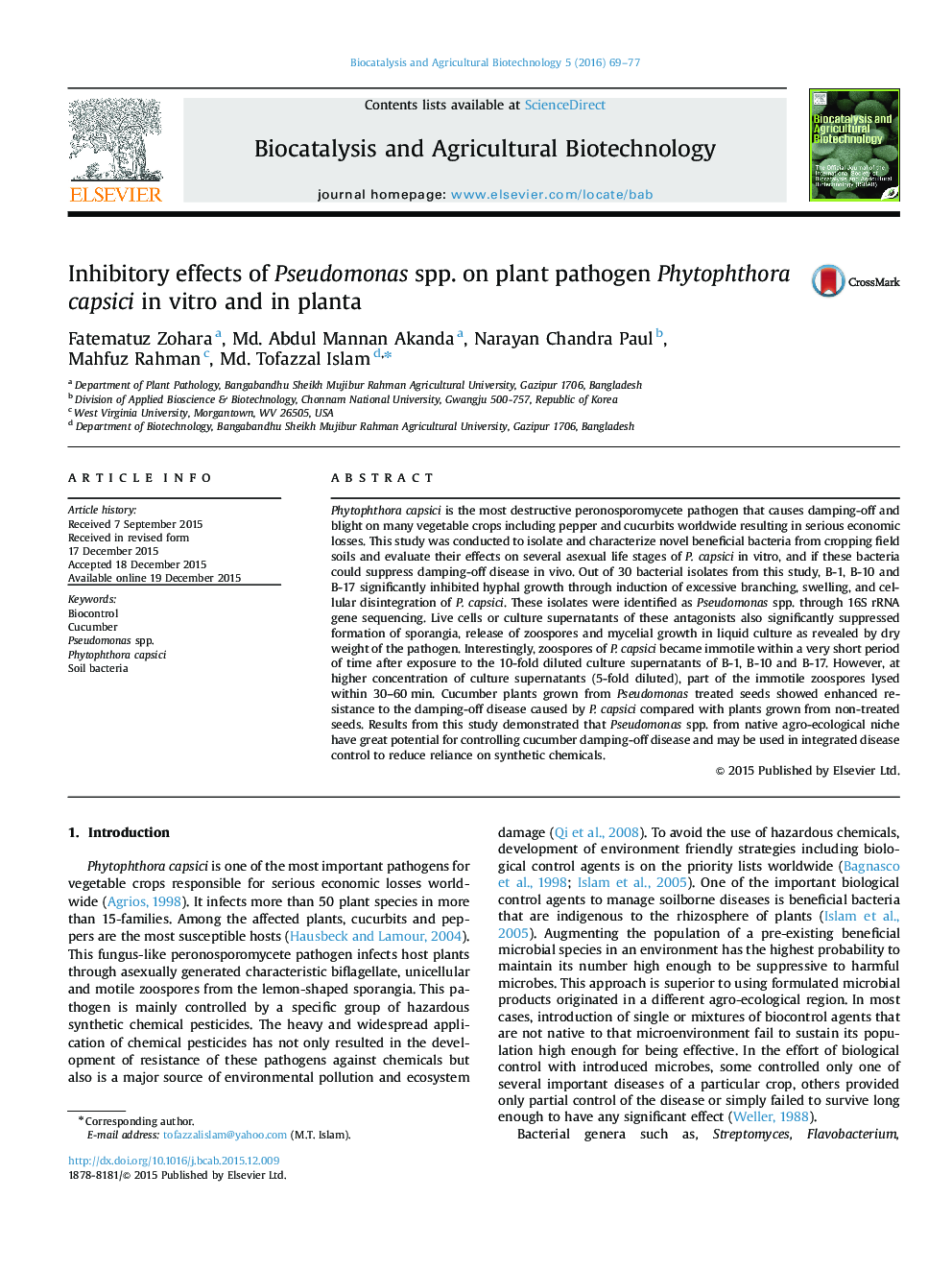| Article ID | Journal | Published Year | Pages | File Type |
|---|---|---|---|---|
| 2075358 | Biocatalysis and Agricultural Biotechnology | 2016 | 9 Pages |
Phytophthora capsici is the most destructive peronosporomycete pathogen that causes damping-off and blight on many vegetable crops including pepper and cucurbits worldwide resulting in serious economic losses. This study was conducted to isolate and characterize novel beneficial bacteria from cropping field soils and evaluate their effects on several asexual life stages of P. capsici in vitro, and if these bacteria could suppress damping-off disease in vivo. Out of 30 bacterial isolates from this study, B-1, B-10 and B-17 significantly inhibited hyphal growth through induction of excessive branching, swelling, and cellular disintegration of P. capsici. These isolates were identified as Pseudomonas spp. through 16S rRNA gene sequencing. Live cells or culture supernatants of these antagonists also significantly suppressed formation of sporangia, release of zoospores and mycelial growth in liquid culture as revealed by dry weight of the pathogen. Interestingly, zoospores of P. capsici became immotile within a very short period of time after exposure to the 10-fold diluted culture supernatants of B-1, B-10 and B-17. However, at higher concentration of culture supernatants (5-fold diluted), part of the immotile zoospores lysed within 30–60 min. Cucumber plants grown from Pseudomonas treated seeds showed enhanced resistance to the damping-off disease caused by P. capsici compared with plants grown from non-treated seeds. Results from this study demonstrated that Pseudomonas spp. from native agro-ecological niche have great potential for controlling cucumber damping-off disease and may be used in integrated disease control to reduce reliance on synthetic chemicals.
